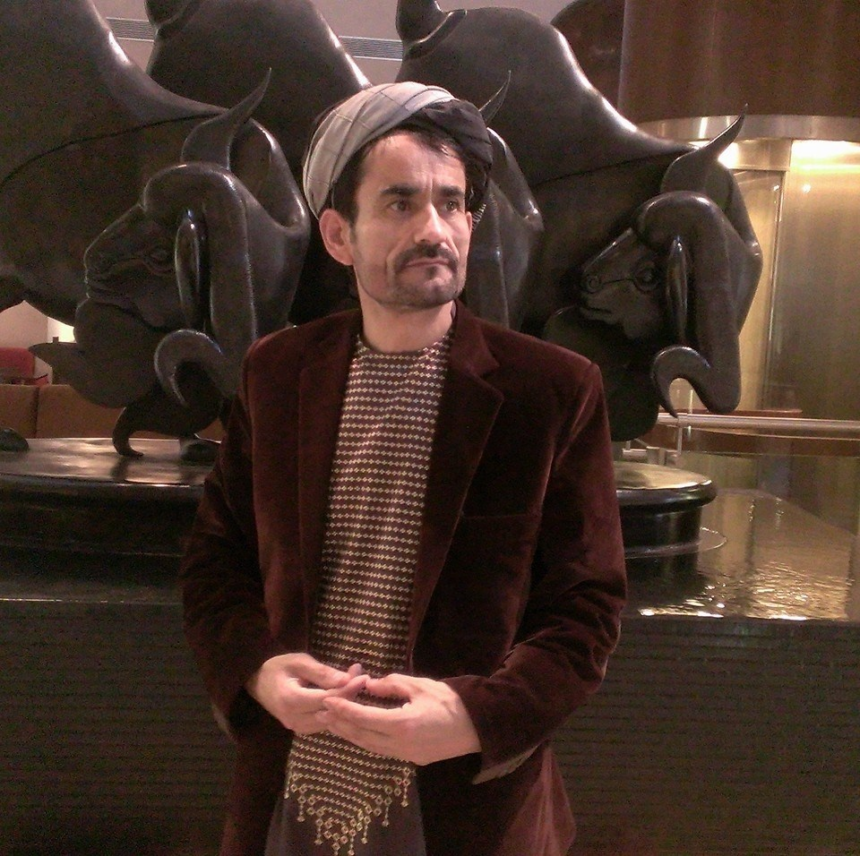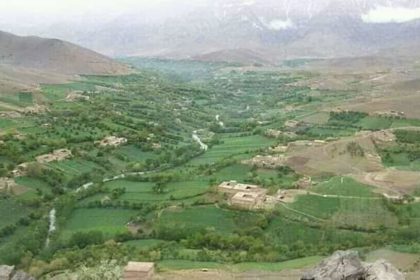RASC News Agency: Taj Mohammad Chahabi, one of Afghanistan’s most acclaimed traditional vocalists and dambura virtuosos from the northern province of Takhar, has officially announced his decision to abandon singing a heartbreaking withdrawal that reflects the broader cultural suffocation imposed under Taliban rule. In a deeply emotional video message shared on his Facebook page, Chahabi, who now lives in exile in Shiraz, Iran, expressed despair over what he described as the “systematic devaluation of art” and the public’s waning reverence for artists. “There is no longer a place for art or the artist in our society,” he said, his voice trembling with resignation. “I can no longer endure this indifference. I have no choice but to stop singing.”
For years, Chahabi’s name was synonymous with cultural pride across Takhar and beyond. His voice, paired with the resonant twang of the dambura a traditional lute symbolic of northern Afghanistan’s musical heritage enchanted audiences across generations. His performances were not mere entertainment; they were acts of preservation, resistance, and identity in a country battered by war but rich in soul. But under the Taliban’s draconian regime, that soul is being extinguished. Since the militant group’s return to power, Afghanistan’s once-flourishing artistic landscape has been bulldozed under the weight of ideological repression. The Taliban’s hardline policies have rendered music a punishable offense. Instruments have been confiscated and burned. Musicians have been threatened, imprisoned, and in some cases, brutally assaulted. Public concerts are now distant memories, and the streets that once echoed with folk melodies have fallen silent.
Even in exile, the shadows of this repression continue to stalk artists. Chahabi himself was violently attacked by armed assailants in Shiraz a few months ago, an incident that left him severely wounded and deeply shaken. Though the attack occurred far from Taliban jurisdiction, it served as a painful reminder that the forces of extremism and intolerance transcend borders and that artists remain vulnerable, even in exile. That assault proved to be a turning point. Coupled with the overwhelming sense of abandonment and cultural erosion back home, Chahabi arrived at a painful conclusion: his voice once a beacon of hope and heritage would sing no more.
“Art in Afghanistan has become a crime,” he remarked. “Under the Taliban, the artist is not only silenced they are erased.” Chahabi’s mastery of the dambura, once celebrated in Afghanistan’s northern and northeastern provinces, has now been reduced to a memory. The instrument, revered as a cultural emblem by Tajiks and Uzbeks alike, has become another casualty of the Taliban’s war on pluralism and creativity. His story is far from unique. Scores of Afghanistani artists have been driven into exile or silence. Many have lost not only their craft, but their livelihoods, identities, and reasons to remain in a homeland that no longer tolerates beauty. The Taliban’s ideological warfare is not limited to politics or religion it is a war on memory, expression, and the very spirit of a nation.
In his final public message, Chahabi issued a solemn appeal to the Afghanistani people: “Do not let art die in your homes and hearts. Art is not decoration it is the soul of who we are. It is our history, our dignity, our resistance.” His words now echo like a final lament in a land where music is no longer allowed to breathe. Under Taliban rule, the silencing of Taj Mohammad Chahabi is not merely the end of a voice it is the silencing of an entire culture.






